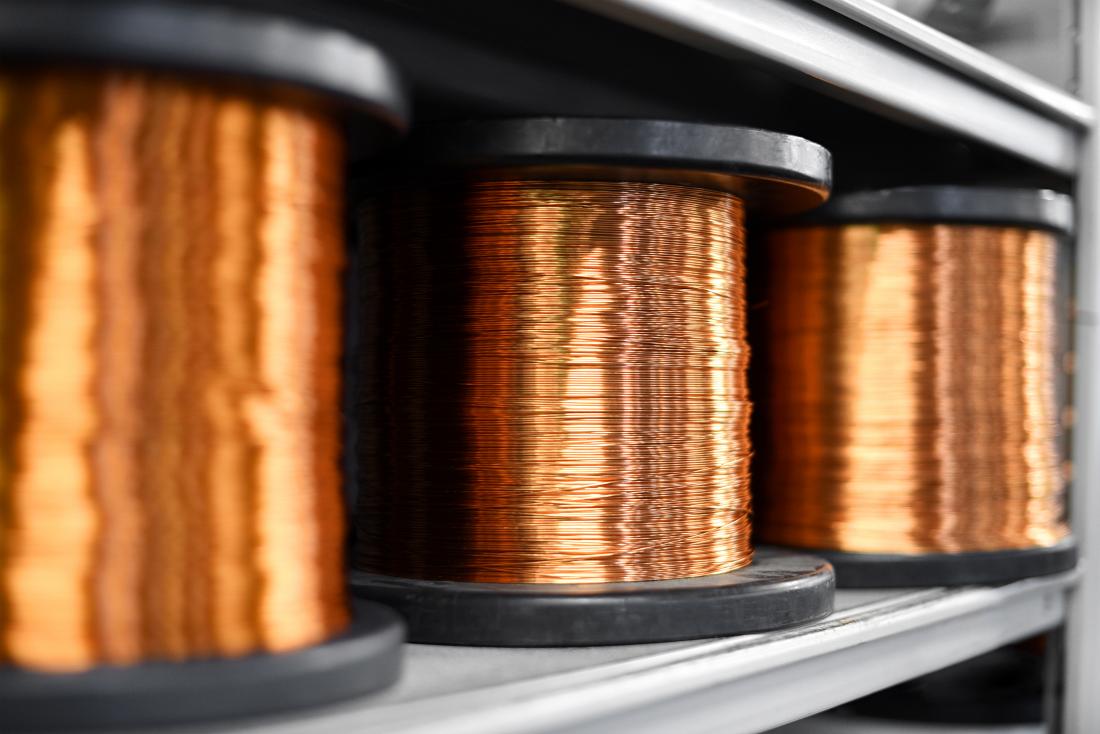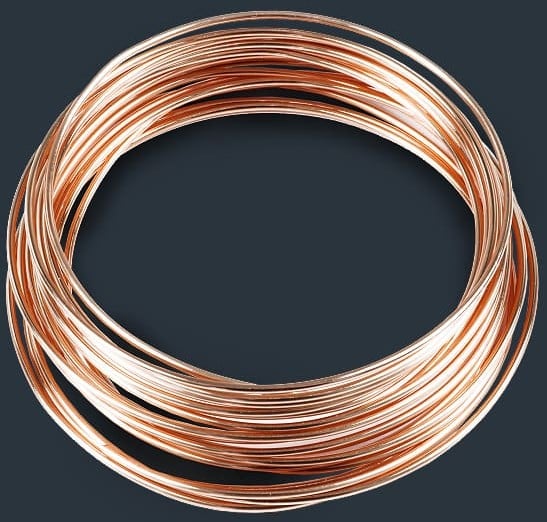Revealing the Health Perks of Using Copper Products in Everyday Life
Revealing the Health Perks of Using Copper Products in Everyday Life
Blog Article
Discovering the Diverse Applications of Copper Products in Modern Industries
From enhancing the effectiveness of electric systems to playing a crucial function in sustainable power innovations, the adaptability of copper is apparent. As markets progressively focus on development and sustainability, the varied applications of copper warrant a closer exam, specifically regarding their potential effect on future environmental practices and technological innovations.
Electrical Applications of Copper
Copper is a necessary material in the electrical market, accounting for around 60% of the complete need for non-ferrous steels internationally - Copper Products. Its superior electrical conductivity, which is nearly two times that of light weight aluminum, makes it the preferred choice for a variety of electric applications. From wiring systems in household and business structures to high-voltage power transmission lines, copper makes sure performance and dependability in electricity shipment
In enhancement to circuitry, copper is indispensable to the production of electric parts such as motors, transformers, and generators. These components utilize copper's thermal conductivity and pliability, essential for warm dissipation and reliable performance. Moreover, copper's resistance to rust improves the lifespan and resilience of electric systems, making it a cost-effective solution in the long-term.
The development of renewable resource sources, such as solar and wind power, has actually better increased the need for copper in electric applications. As industries shift in the direction of lasting energy services, copper's role becomes much more essential. Overall, the adaptability and efficiency characteristics of copper strengthen its standing as a cornerstone product within the electrical sector, driving development and effectiveness throughout different applications.
Plumbing and Piping Solutions
In modern pipes systems, the selection of materials substantially influences both functionality and long life. Copper has actually become a preferred option because of its unique buildings, including rust resistance and antimicrobial characteristics. These qualities make sure that copper piping remains long lasting and secure for transporting drinkable water, an essential factor to consider in property and commercial applications.
One of the essential benefits of copper in pipes is its capability to withstand high temperatures and stress, making it appropriate for a selection of applications, from warm water systems to heating and cooling down networks. Furthermore, copper's adaptability enables easier setup in intricate piping designs, reducing the threat of leaks and failures.
An additional noteworthy benefit is copper's lengthy lifespan, often surpassing half a century with appropriate upkeep. This durability not just minimizes replacement prices but likewise adds to sustainable methods by reducing waste. In addition, copper's recyclability straightens with modern-day ecological criteria, promoting a round economic situation within the plumbing industry.
Copper in Renewable Resource
The adaptability of copper expands beyond pipes additional info applications, playing a vital function in the sustainable power market. In solar panels, copper is utilized in solar cells and circuitry, helping with effective energy conversion and transmission.

Furthermore, as the global demand for electric vehicles (EVs) boosts, copper's duty in battery systems and billing infrastructure becomes even extra considerable. The product's capability to carry out electrical energy effectively is indispensable to the performance of EV batteries, improving range and charging rate.
Copper's Function in Electronics
Electronic devices making depends heavily on copper's phenomenal homes, particularly its high electric conductivity and thermal effectiveness. These characteristics make copper an excellent selection for a wide variety of electronic elements, including connectors, circuit card, and wiring. The steel's ability to effectively transmit electrical signals makes certain minimal energy loss, which is important in high-performance digital gadgets.
Furthermore, copper's thermal conductivity plays a considerable function in heat dissipation, shielding sensitive components from overheating. This is specifically important in modern electronic devices, where portable layouts result in enhanced warmth generation. Copper is likewise preferred for its malleability and ductility, permitting it to be quickly shaped into detailed styles that satisfy the needs of innovative electronic applications.
With the rise of customer electronics, telecoms, and electric lorries, the need for copper in the electronics industry proceeds to grow. Therefore, copper stays a cornerstone material in the ever-expanding field of electronics.
Ingenious Utilizes in Manufacturing

One remarkable application remains in additive production, where copper-based materials are utilized in 3D printing click over here now procedures. This permits for the creation of complicated geometries and light-weight elements, especially in the aerospace and automotive fields. Furthermore, copper's thermal conductivity makes it a perfect option for warmth exchangers, boosting effectiveness in commercial cooling systems.
In addition, the rise of wise production has seen the unification of copper in IoT visit this site right here gadgets, where its conductive capacities support sophisticated sensing modern technologies. In the realm of renewable resource, copper is essential in the manufacturing of photovoltaic panels and wind turbines, promoting much more effective energy conversion and distribution.
As sectors pursue sustainability and technology, copper's adaptability and performance proceed to position it as a critical product, driving developments in production and adding to the advancement of smarter, much more effective products.
Final Thought
The integral duty of copper in renewable energy and its important function in electronics underscore its relevance in progressing sustainable practices. Jointly, these applications show copper's essential payment to technical progress and commercial performance in modern society.
From boosting the effectiveness of electrical systems to playing a vital role in sustainable energy modern technologies, the adaptability of copper is evident. As markets progressively focus on development and sustainability, the varied applications of copper require a closer examination, especially regarding their prospective effect on future ecological methods and technological advancements.
The growth of eco-friendly energy sources, such as solar and wind power, has actually additionally boosted the demand for copper in electrical applications. Overall, the versatility and performance attributes of copper solidify its condition as a keystone material within the electric market, driving technology and effectiveness across different applications.
The convenience of copper expands beyond plumbing applications, playing an important role in the eco-friendly energy sector.
Report this page